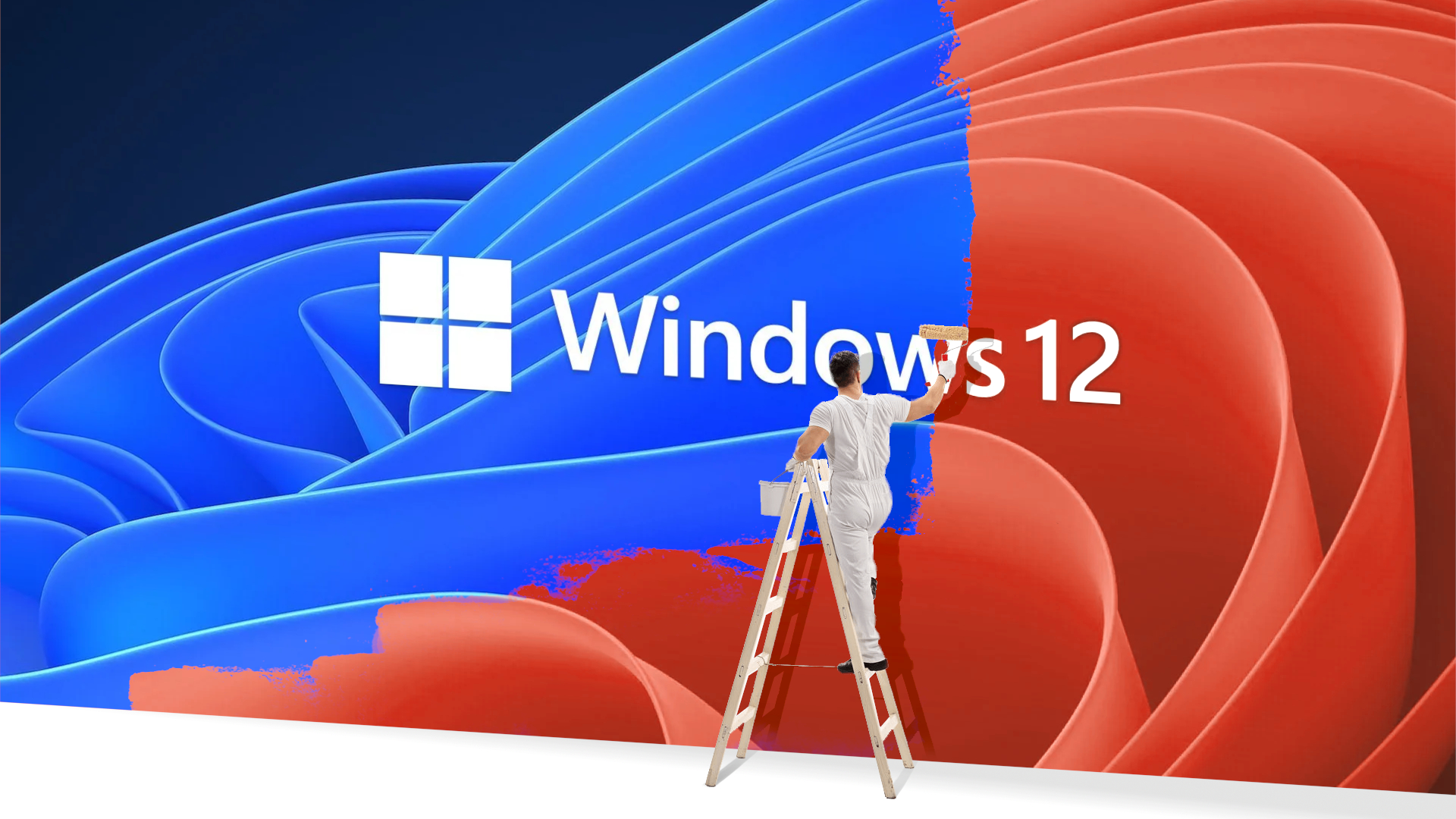Microsoft 365 Office didn't need a rebrand but Windows 11 desperately does
Copilot can do many things, but it can't save Microsoft from its real crisis: Windows 11

If you thought the biggest challenge for Microsoft in 2025 would be ferrying the world away from Windows 10 before its October end-of-support deadline, guess again.
While millions cling to the company's aging operating system like a safety blanket in a Peanuts comic strip, Microsoft has turned its attention to a more pressing matter: confusing its users with yet another classic and unnecessary rebrand.
This time around, it's the turn of the already terribly branded Microsoft 365 Office (formerly the Microsoft Office of old), which will now be known as Microsoft 365 Copilot — a name that not only fails to communicate what the software does but also adds a further layer of confusion by adopting an almost identical icon to Copilot itself, save for a small "M365" label.
Microsoft 365 Office is just another victim of the Copilot branding spree, which sees the Windows 11 platform now potentially outfitted with more Copilots than actual pilots, sitting in the shadow of Windows 10's estimated 62.7% market share according to a December StatCounter report — a number that, despite the platform's forthcoming rug-pull, has been on the rise since October 2024.
If these figures highlight anything, it's the elephant in the room and a rebrand Microsoft actually needs to focus on: Windows 11.

It's Copilots all the way down
When luxury British car manufacturer Jaguar announced its modern rebranding in November with the now infamous "Copy Nothing" video, I was sure I'd witnessed the worst marketing disaster since New Coke.
"Copy nothing," was the central message behind Jaguar's vignette, which bravely decided not to show an actual car, instead opting for flourishes of models that look dressed to audition for my fever dream remake of The Rocky Horror Picture Show, helmed by Nothing CEO Carl Pei.
Sign up to receive The Snapshot, a free special dispatch from Laptop Mag, in your inbox.
If Jaguar's "Copy nothing" campaign represents the pinnacle of marketing pretentiousness through the lens of claiming to be "unique," Microsoft's Copilot 'rebrandathon' is sitting on the opposite end of the spectrum — a relentless exercise in derivative overuse potentially steamrolling its way to a similarly negative outcome.
Everything from apps to new Copilot+ PCs is labeled with the same name, leaving many users confused as to whether Copilot is a product, a feature, or Microsoft's desperate way to convince the world it's the first and best AI operating system after it invested over $13 billion to get its foot in the door early with OpenAI, only for CEO Sam Altman to give away the farm for free to Apple in exchange for exposure.
Spoiler: It's all of the above.
Windows 11's image crisis is the only rebrand Microsoft needs to focus on
Distracted by the fun of confusing its user base when they can no longer locate the office suite they've been using for the last few decades, Microsoft is overlooking a far more critical issue: getting users to upgrade to Windows 11.
While an influx of businesses making the transition throughout 2025 will undoubtedly buoy Windows 11's market share, many individual users are willing to fight it out, likely in the hopes that Windows 12 is waiting in the wings to make its grand entrance.
Microsoft seems dead-set on finding out the hard way that people don't appreciate being bullied into compliance.
Especially if Microsoft's now almost historically dependable pattern of providing on-again-off-again versions of the Windows operating system continues (e.g., Windows Vista bad, Windows 7 good, Windows 8 bad, Windows 9 MIA, Windows 10 good, you get the drift).
However, even thoughts of Windows 12 are beginning to sour, as it's becoming plainly obvious that Microsoft's generative AI modding of core Windows apps will be something that's carried over (in turn dragging the same list of complaints about Windows 11's hardware requirements and AI bloat along with it) — assuming the fabled operating system ever actually materializes.
Microsoft simply isn't giving the average user much reason to leave Windows 10 behind.
Microsoft simply isn't giving the average user much reason to leave Windows 10 behind. Instead of loosening hardware restrictions, positioning its AI features as an optional addition to and not the core experience, developing a lightweight game-friendly mode for laptops and handheld gaming PCs to benefit from, or even allowing users to position the taskbar wherever they like, Microsoft seems dead-set on finding out the hard way that people don't appreciate being bullied into compliance.
Strong-arming your user base into doing what you want by restricting features, enforcing deadlines, and revoking support for popular apps isn't a winning pitch.
While Windows 10's end-of-support, which coincidentally will also revoke support for Microsoft 365 apps on older systems, will push users to Windows 11, it will do so begrudgingly. In its present state, at least regarding its image, Windows 11 will be an operating system most people tolerate but never fully embrace.
If there's any Microsoft product in dire need of a rebrand, it's Windows 11.
What's next
Contrary to the perceived thought behind Microsoft's actions, slapping the word Copilot onto everything you can in Windows does not make a cohesive ecosystem.
It's a bit like straightening the bow tie of a waiter and restocking his supply of vol-au-vents as you send them off to see if anybody feels slightly peckish across the deck of a sinking Titanic.
Suppose Microsoft wants people to adopt its Copilot-centric operating system. In that case, its best bet is to make Windows 11 a platform people actually want to use, not to bank on the fact that Windows users will have no other option come October 14, 2025.
To many Windows 10 users, the leap to Windows 11 is alien enough, making alternative operating systems equally as alien an option to go with. As the idiom goes, "Don't count your chickens before they've hatched," or the only platform stealing market share from Windows 10 could be macOS or Linux.
More from Laptop Mag

Rael Hornby, potentially influenced by far too many LucasArts titles at an early age, once thought he’d grow up to be a mighty pirate. However, after several interventions with close friends and family members, you’re now much more likely to see his name attached to the bylines of tech articles. While not maintaining a double life as an aspiring writer by day and indie game dev by night, you’ll find him sat in a corner somewhere muttering to himself about microtransactions or hunting down promising indie games on Twitter.
